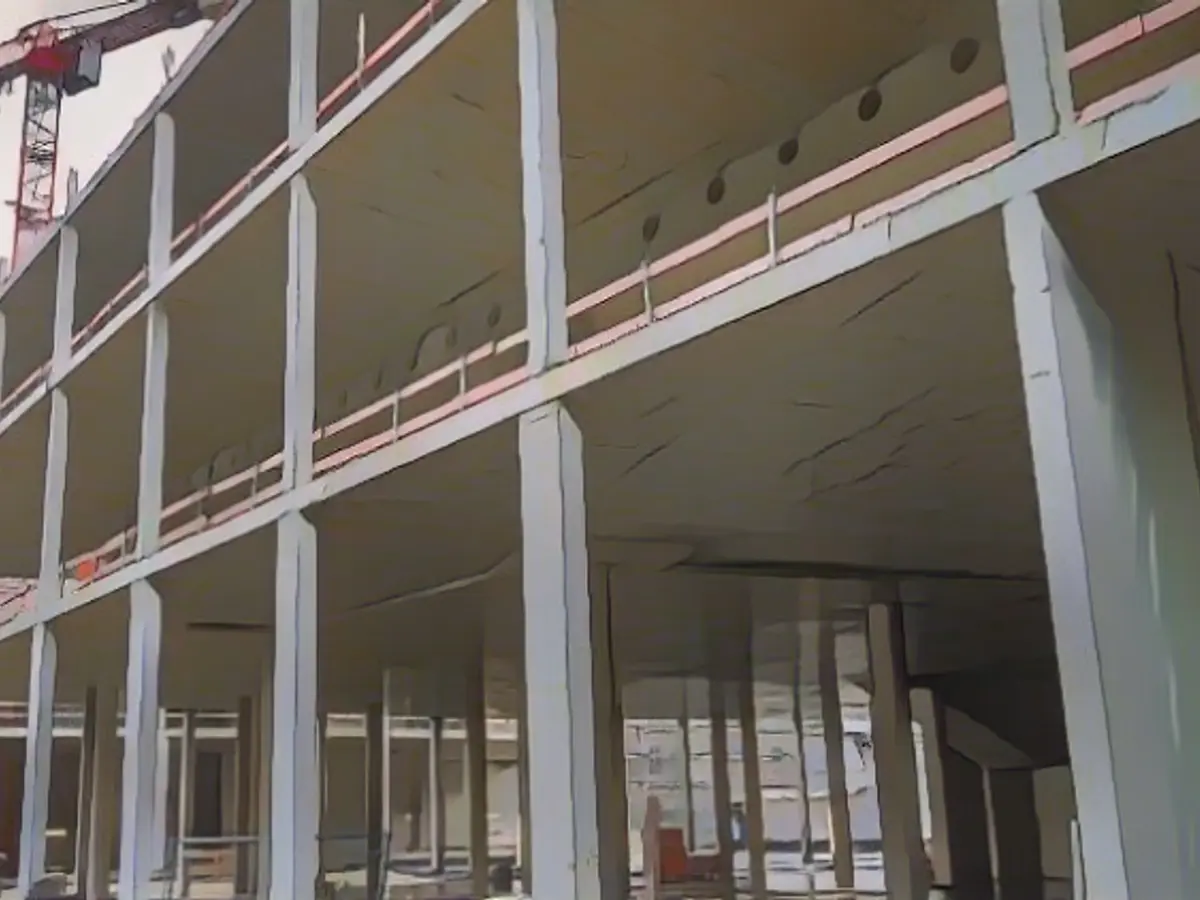A storm is brewing on the real estate market
The bankruptcies of the first project developers in the summer were possibly just a foretaste of a wave of bankruptcies: the explosion in interest rates is choking off the real estate sector. At worst, there is a threat of "systemically relevant losses in the banking sector".
Rising construction costs, exploding interest rates, growing losses: the downturn on the real estate market is increasingly threatening to turn into a smoldering financial crisis. The bankruptcy of project developers such as Euroboden, Project Group and Development Partner in the summer was possibly just the harbinger of a larger wave of bankruptcies that could, in the worst case, also affect the banking sector. The explosion in interest rates is increasingly choking off even the industry's heavyweights. Even major players could soon have problems servicing their debts.
In its semi-annual Financial Stability Report, the ECB even devotes a special chapter to the crisis - and sounds the alarm. This is because the debt-to-equity ratio of the largest real estate companies in the eurozone is now "close to or above the level before the global financial crisis" - ten times their profits. However, with the start of the interest rate turnaround last year, it is becoming increasingly difficult for companies to refinance this huge mountain of debt. The most heavily indebted companies could therefore run into difficulties when they have to repay their loans, warns the central bank.
According to the ECB, loans for commercial real estate have become 2.6 percent more expensive on average since the start of the interest rate turnaround. Falling sales prices are reducing income: The number of sales halved year-on-year in the first six months of the year. And the trend towards working from home is causing rents to fall because fewer office towers are needed. "This mix of cyclical and structural challenges has led to significant rating downgrades for real estate companies in recent months."
All in all, the sector is facing considerable losses. The stock market is therefore massively punishing real estate companies: the largest listed groups are currently trading 30 percent below their book value - the biggest discount since the 2008 financial crisis. The central bankers fear that many companies could soon run out of steam: "Business models based on low interest rates and pre-pandemic profitability expectations could become unsustainable in the medium term".
Banking sector on feet of clay?
The impending losses could soon become a problem for bank balance sheets, the monetary watchdogs warn. This is because the commercial real estate market accounts for around ten percent of all bank loans in the eurozone. The ECB already expects the proportion of loans to companies in the red to double to 26 percent in the near future. If interest rates remain this high for another two years and turnover in the real estate sector falls by 20 percent, the ECB estimates that as many as half of all loans would be at risk.
The good news is that it is "unlikely" that the impending losses in the commercial real estate market alone are "large enough to trigger a systemic crisis at eurozone level". However, things could get tight for banks that are particularly heavily involved in this segment. Moreover, the problem is not the crisis in the real estate sector alone, but the fact that so many crises - inflation, war in Ukraine and the Middle East, interest rate reversals - are currently overlapping.
The turmoil therefore has the potential "to become a significant, amplifying factor in a negative scenario, increasing the risk of systemic losses in the banking system". In other words, the impending wave of bankruptcies on the real estate market could become the straw that breaks the camel's back and triggers a new banking crash. There is also the contagion effect: the impending wave of bankruptcies could lead to "severe losses" in other parts of the financial system that are dependent on commercial real estate, such as investment funds or insurers.
The market for residential real estate is also coming under increasing pressure due to the ECB's interest rate explosion. The potential for a crash is even greater here: 30 percent of all bank loans in the eurozone are in mortgages. However, this segment is still comparatively stable at the moment. So far at least, inflation and war have not caused most house builders to lose their jobs - so they can continue to finance their own four walls despite rising interest rates. But: "A noticeable weakening of the labor market would mean considerable risks for residential real estate portfolios".
- The surge in interest rates is pushing many residential construction projects to the brink, as developers struggle to secure affordable financing for their projects.
- With mortgage rates increasing and the demand for new homes declining due to economic uncertainty, several real estate firms have seen their interest income decrease, putting strain on their profitability.
Source: www.ntv.de








